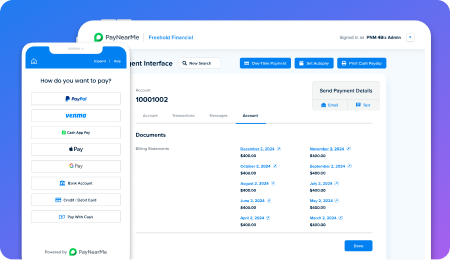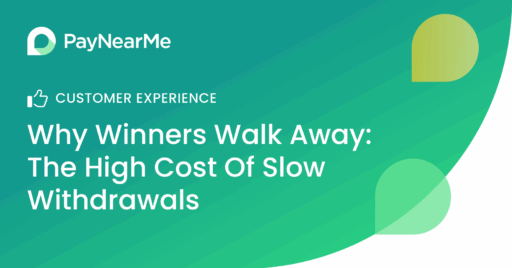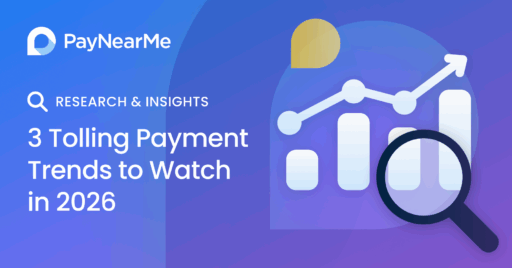Evaluating an iGaming Payments Platform: 10 Questions to Ask

As an iGaming operator, choosing your next payments provider can be a complex decision, but it’s easier with a focused approach on what to look for. Along with gaining competitive features, you’ll want to explore key capabilities in a modern platform that help you solve your biggest problems.
From optimizing the payment experience and back-office management, to simplifying integrations and security, there are many factors to consider. To guide your evaluation, you can take advantage of PayNearMe’s Buyer’s Guide – How to Choose Your Next Payment Provider. Created especially for iGaming operators, this guide includes a deep dive into 10 critical topics around choosing a new payments platform, each with a series of questions to support your RFP or purchase process.
Here we’ll introduce the 10 evaluation factors and related questions to consider that can help make your decision process easier.
1. What payment options and channels are available?
Making it as easy as possible for bettors to fund their accounts and receive payouts is critical for player retention. Accepting only ACH and cards is not enough to meet today’s expectations. People want the flexibility to move money however they choose.
If you’re thinking about patching third-party payment providers onto your legacy system, keep it mind that it can be costly and complex. And looking at modern platforms, not all of them are built to seamlessly integrate with the latest payment rails. Your next platform provider should enable a wide range of payment methods that increase your ability to attract and retain bettors and reduce exceptions (like card declines), to lower your overall cost of payment acceptance.
For online casinos and sports betting, in particular, the payments mix should include ACH and debit/credit cards, but also pass-through digital wallets like Apple Pay and wallets that allow a stored balance such as PayPal and Venmo.
Question to ask: Does the platform have native integrations with passthrough and stored value mobile wallets?
You’ll also want to enable bettors to fund their account with cash deposits at retail locations where they frequently shop (e.g., 7-Eleven, Walmart, CVS). Why does it matter? A PayNearMe study found that 63% of bettors would be likely to deposit cash for online betting if given the opportunity, including 78% of frequent bettors. Taking that further, 43% of frequent players said that using cash, they would make larger deposits more often. That’s a vital revenue stream you want to keep flowing.

2. How is money movement managed?
It’s important to consider how the payments provider manages the flow of funds in and out of the platform. For instance, how well can they handle high-volume transactions during peak events like the Super Bowl or March Madness? Can they handle compliant transactions in every U.S. state where you operate, and settle funds back to you quickly?
Question to ask: What payment types can they support for disbursing payouts?
Prioritizing fast payouts can be key to improving player retention and profitability. PayNearMe research found that nearly 60% of bettors who experienced payment issues said they would be likely to switch to a competitor app if it promised faster withdrawals. Look for a modern platform that enables players to quickly cash out their winnings to their bank (via ACH), card or preferred mobile wallet.
3. What is the customer payment experience like?
In a recent blog, we talked about how consumer payment behaviors are changing and what that means for iGaming operators. Industry leaders like Uber, Amazon, and Apple have excelled at making payments nearly invisible, and players now want that same frictionless experience for online sports betting and casinos.
The easier it is for players to fund their account on the first try, the quicker they can dive into the betting flow. Ideally, along with more payment options, that also includes eliminating the hassle of having to remember logins and deal with card declines.
Question to ask: Does the platform offer 1-click, personalized payment links?
A modern payments platform should enable personalized links (via text or email) so players can jump directly into the payment app to fund their account in a few taps, with no login required. A seamless experience is the crux of whether or not players convert and remain loyal to your iGaming app.
4. How can it streamline our back-office?
Simplifying the player payment experience is key, but equally important is reducing complexity for your back-end operations. Look for a platform that offers robust tools for automated efficiency and give you more control over the payments process.
Question to ask: How does the platform simplify reconciliation and reporting?
With an older system, it’s likely your accounting staff has to wade through multiple reports for different payment partners and different types of exceptions. Reducing your reporting burden can be a big win.
Consider a platform that aggregates and clearly organizes transaction data in a single file. It amplifies efficiency so your staff can dramatically save time and focus on more strategically valuable work. And centralized reporting helps ensure your team has the right data at hand to more easily manage (and win) chargeback disputes.
5. How does the platform minimize fraud risk?
Payment fraud continues to escalate, with the highest rates impacting the online gaming industry. According to a new study, iGaming fraud increased 64% year-over-year on average between 2022 and 2024.
As an operator, you may find it’s getting harder to battle against bonus abuse, illegitimate chargebacks, money laundering, and account takeovers. But adding more headcount to your risk teams is not scalable and the rising costs drain away your profits.
To combat the problem, you’ll want your next payments platform provider to have a robust suite of advanced fraud capabilities. For example, customizable fraud prevention rules and behavioral analytics to detect evolving fraud patterns.
Question to ask: What is your fraud prevention success rate, and how have you adapted to recent fraud trends in the iGaming industry?
Look for round-the-clock fraud support that ensures immediate response to payment issues, and chargeback management tools to resolve disputes faster and help prevent them from happening. Partnering with a fintech provider that has a strong industry reputation and proven experience can provide the risk mitigation, compliance, and peace of mind that your business needs.

6. How does the platform ensure reliability
Every minute your payments provider is down can result in a significant loss for your business, especially during high-volume betting events. Choosing a fintech partner with zero-downtime capabilities is crucial to help you reduce risk.
Question to ask: What kind of redundancy is built into the system to minimize downtime?
First, you’ll want to ensure 100% uptime during platform updates and planned maintenance, so the player payment experience is never interrupted. Beyond that, the right provider should have a platform that’s built with a backup plan to avoid the high cost of unplanned downtime. Ask about ‘redundant card processing’ and whether the platform can manage across multiple payment processors to reduce potential downtime.
7. Which integrations does it support?
Being able to receive and send payments data across other business systems is vitally important to reduce manual data entry and related errors and costs.
Question to ask: What systems of record in your industry does the platform integrate with?
For example, you may want to seamlessly sync payments data with your player account management (PAM) platform. And have automated efficiency to ensure bettors see real-time account balance information to avoid confusion and reduce support calls.
To future-proof your system, consider a provider that has flexible APIs to access new capabilities and connect to other systems that need payments data such as your messaging platform.
8. How can the platform reduce our compliance risk?
When evaluating your next payments platform, your internal teams for security, risk management and compliance will be key stakeholders. However, there are basic areas that your buying committee can assess up front to ensure a given solution and fintech partner meets base level requirements.
For starters, ensure the platform adheres to PCI-DSS, NACHA and other industry compliance standards. An optimal system should also enable business rules that can mitigate fraud and illegitimate chargebacks.
Question to ask: What tools or features does the platform have to minimize exceptions?
Choose a payments platform that helps reduce your risk and compliance scope, including costly returns and other exceptions. A provider with meticulous safeguards can protect your business against security, risk and compliance failures.
9. What kind of support can we count on?
Support is more than just solving issues quickly. It also means having a collaborative relationship that can speed your time to market, tailor the platform to your needs, and help you keep pace with changes in the payment industry and gaming regulations.
Question to ask: Do they offer dedicated 1:1 account support throughout the life of your agreement?
Investing in a partner with a strong commitment to relationship support can enable you to continue extracting value long after the purchase. Look beyond smooth onboarding, quick response times, and reliable updates. You’ll also benefit from a provider that offers ongoing training opportunities and best practices, as well as robust documentation for self-service support.
10. What’s the pricing structure?
Pricing of a new payments provider is always a consideration, but it’s important to look beyond per-transaction rates. There are many factors that influence your total cost of accepting payments. For instance, a rigid system or subpar user experience often triggers more exceptions and support calls, and the related costs reduce your profit margins. In contrast, an optimal modern platform is built to lower your total cost of payment acceptance.
Question to ask: What kind of ROI can you expect from switching to this platform?
Think flexible, frictionless options that reduce declines and the need for manual intervention, and automated workflows that enable cost-saving efficiency. The right platform may even provide the opportunity to offset the cost of certain payment options by charging a convenience fee.
Take the next step for your RFP
When it comes to choosing the right payments provider for your business, we know every company is unique and has their own considerations. As a follow-up to this overview, you can explore more questions to guide your evaluation in our sample RFP questionnaire.
For a deeper dive, take advantage of our Buyer’s Guide on how to choose your next payment provider.



